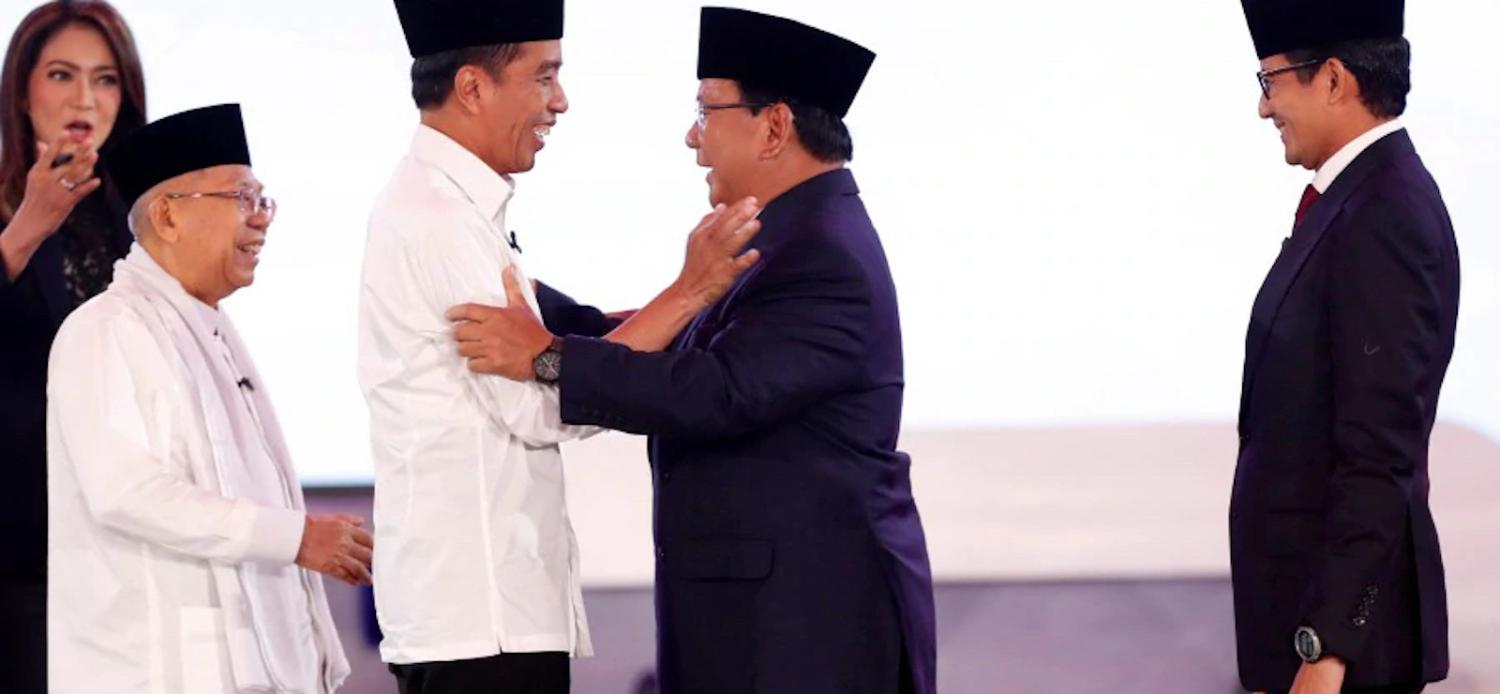With the slick presenters, questions pulled out of a fishbowl, and baritone voice-overs, the casual viewer might have thought this was a game show rather than a political battle to lead a nation of more than 260 million people.
It is true that the content can be lightweight and the format is overwrought. But this is real politics in the world’s third-biggest democracy.
That is why mocking the format and content of Indonesia’s televised presidential debates has become something of a spectator sport for Indonesia watchers (myself included).
But behind the show business, there is real, contested politics, and a serious effort by the election commission to elevate the level of public debate in this young democracy.
On Sunday night, incumbent President Joko Widodo (known as Jokowi) faced-off against challenger Prabowo Subianto in the second of five set-piece TV debates before the election on April 17.
The first debate, which focused on law and human rights, was somewhat lacklustre. This head-to-head, on economic themes such as infrastructure, natural resources, and agriculture, was livelier and slightly more substantive.
Jokowi touted his achievements in building infrastructure and boosting production of foodstuffs such as corn. He also called for more time to push ahead with complex reforms. Prabowo attacked Jokowi for rushing to build toll roads and airports without assessing their cost-effectiveness or their environmental and social impact. And he reiterated his stump-speech calls for Indonesia to stop foreigners taking its resources and “stand on its own feet” again.
Both men showed off their contrasting styles. Jokowi wore his trademark white shirt with rolled-up sleeves, designed to project an image of down-to-earth, clean, and hard-working leader. Prabowo wore a suit, tie, and traditional black peci hat, trying to show himself as both more worldly and more nationalistic than his rival at the same time.
The comic highlight of the long evening in Jakarta came when Jokowi asked Prabowo what he would do to support the development of more Indonesian “unicorns”. The tough-talking former special forces general, and son-in-law of Suharto, was briefly stumped, asking Jokowi what he meant, before realising he was referring to the word for technology start-ups that have raised more than $1 billion.
Much of the discussion was repetitive and devoid of nitty-gritty policy detail. The format was far too long and elaborate, with both candidates talking for just six minutes in an opening half an hour laden with preamble.
But a bit of context helps to put Indonesia’s presidential debates in a better light. These leadership debates can be very difficult to organise, with election commissions, broadcasters, and the candidates’ teams all needing to agree on the rules.
The UK held its first-ever televised leadership debates in 2010 and repeated the exercise in 2015, after tortuous negotiations. But Prime Minister Theresa May refused to participate in 2017 and broadcasters and political advisers have continued to argue over what to do in future.
The clunkiest elements of the Indonesian debates, like the candidates sheepishly selecting questions from a fishbowl, are designed to ensure – and demonstrate – that the process is free from bias.
It is a near miracle that Indonesia’s major broadcasters, which are owned by egotistical tycoons with competing business and political interests, can come together to agree on a format with the fractious political parties backing Prabowo and Jokowi.
Indonesia’s election commission (the KPU) is the unsung hero, overseeing the fairness of the process and using it to educate the voters about the election and the choices that are on offer – that is why the five debates are themed around different issues.
It is true that the content can be lightweight and the format is overwrought. But this is real politics in the world’s third-biggest democracy, not an Oxford Union debate.
Ultimately, criticism of the shallow nature of the discussion says more about the state of Indonesian politics than the TV debates themselves, which are a serious effort to bring the campaign to the people in a country that has only been practising democracy for 20 years.

